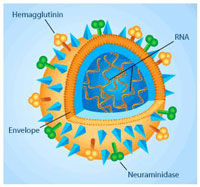Genelabs Drug Discovery Team Advances Compounds Against the Hepatitis C Virus In Preclinical Development
Advertisement
Genelabs Technologies, Inc. announced that a non-nucleoside compound from its internal hepatitis C virus (HCV) drug discovery program has advanced into preclinical development. The compound, designated GL60667, is the second Genelabs non-nucleoside compound to advance into preclinical development. Genelabs also announced that the company has further advanced GL59728, its first non-nucleoside preclinical development candidate. Genelabs plans to initiate Good Laboratory Practices (GLP) preclinical studies on GL59728 which, if successful, would enable the company to file an Investigational New Drug Application (IND) for the compound. Genelabs retains all commercial rights to its non-nucleoside compounds.
Genelabs based its decision to advance compound GL60667 on rigorous pre-determined standards, including various measures of potency, metabolism, pharmacokinetics and toxicity. Genelabs believes that compounds meeting these criteria should hold a competitive advantage over other non-nucleoside HCV inhibitors described in the scientific literature. GL60667 has demonstrated the following properties in in vitro assays: potency of approximately 40 nanomolar against an HCV replicon, potency of approximately 20 nanomolar for inhibition of the HCV polymerase and potency against the major genotypes of HCV, including genotype 1, the most common genotype in the United States and western Europe.
The concentration of GL60667 that is effective in reducing HCV replication is more than 100 times lower than the concentration that causes toxicity to various human cell lines, as demonstrated in a battery of tests conducted by Genelabs. Genelabs also has profiled the metabolic and pharmacokinetic properties of GL60667 in several different animal species. Extrapolating from this data, Genelabs believes the compound should be suitable for once-a-day dosing.
Separately, Genelabs advanced its first non-nucleoside preclinical candidate, GL59728, into IND-enabling studies based on favorable results from 1-day and 7-day toxicology studies in two animal species. Selection of a vendor for process development and large-scale synthesis is underway.
In addition to its non-nucleoside HCV drug discovery program, Genelabs also has an HCV drug discovery program using nucleoside compounds under a September 2004 research collaboration and license agreement with Gilead Sciences, Inc.
Apart from the nucleoside and non-nucleoside HCV polymerase drug discovery programs, in 2004 Genelabs initiated a third HCV drug discovery program focusing on another target essential for HCV replication. This target is encoded by the region of the HCV genome known as NS5a. Genelabs believes compounds targeted at NS5a could lead to drugs that inhibit HCV by a novel mechanism. As such, these compounds may be particularly attractive for combination treatment regimens in HCV. In preliminary studies, Genelabs' small molecule compounds in this program can inhibit the HCV replicon with minimal toxicity to human cell lines. The company has generated initial lead compounds which are in the process of optimization.



























































